Small companies and startups in the geospatial sector are redefining the approaches to diversity, equity, and inclusion (DEI). With the agility to build inclusive cultures from the outset, these companies are leading the way in embedding DEI into their DNA. The World Geospatial Industry Council (WGIC) recently interacted with a few innovative startups that are bringing a vibrant mix of perspectives and a strong commitment to DEI. This article delves into how these startups drive DEI and the benefits they realize.
Diverse Teams Ignite Innovation
Innovation thrives on diverse perspectives. Startups like Inovaantage, an IT solutions company with a strong play in geospatial, understand that a workforce rich in diverse backgrounds fosters creativity and unique solutions. Dr Sukanta Kumar Jena, CEO of Inovaantage says, “By hiring talent globally, Inovaantage leverages a variety of viewpoints crucial for tackling complex geospatial challenges. This global approach not only enhances our problem-solving capabilities but also ensures a richer understanding of diverse markets and customer needs.”
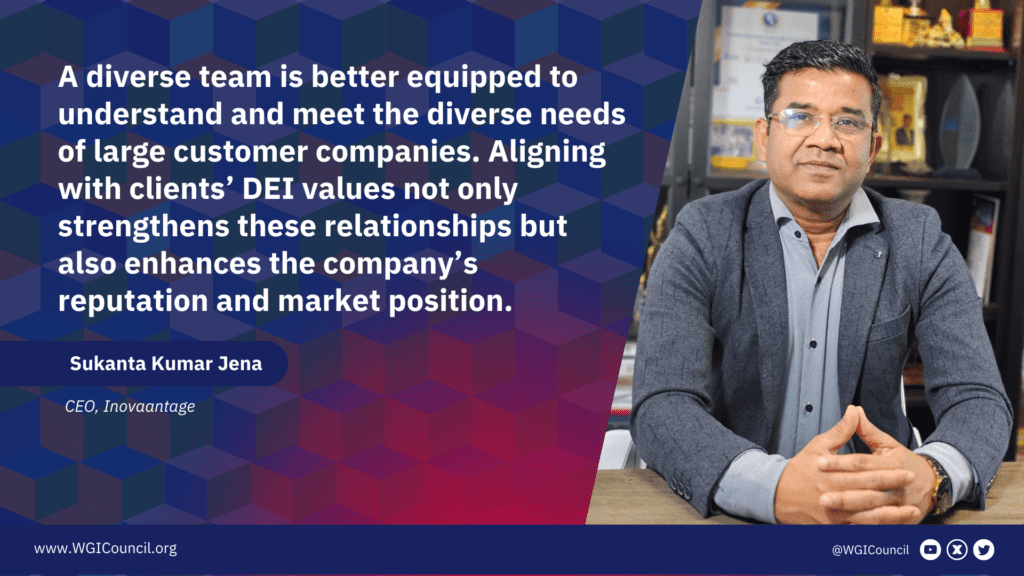
A workforce rich in diverse backgrounds fosters creativity and unique solutions. For instance, Inovaantage works with clients such as Singapore Power and Telenor Group, who prioritize diversity. Aligning with their clients’ DEI values not only strengthens these relationships but also enhances the company’s reputation and market position, he says. This alignment with client values helps Inovaantage build stronger, more trusting partnerships.
Building a Strong Organizational Culture
Building a cohesive and inclusive culture from the ground up is essential for startups. iSpatial Techno Solutions, a provider of smart solutions that bring automation to enterprise business processes and led by CEO Narendra Babu Vattem, emphasizes clarity in vision and role definition. This approach ensures that every team member feels integral to the company’s mission, fostering an environment where innovation and collaboration can flourish. At iSpatial, the clear definition of roles and the shared understanding of the company’s goals create a unified team effort towards innovative solutions.
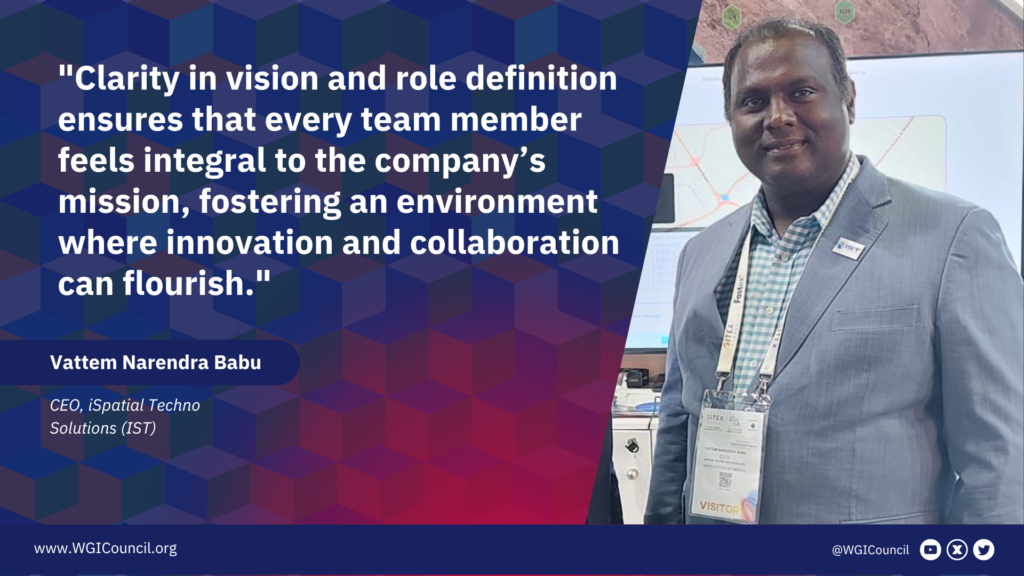
Ensuring an inclusive environment where all employees feel valued is crucial. Companies like Inovaantage demonstrate this through gender diversity, with nearly 45% of their workforce being female. This commitment to diversity helps create a balanced and dynamic work environment. Gender diversity at Inovaantage is not just about numbers; it’s about creating an environment where every employee can thrive and contribute fully.
Investing in Continuous Learning and Global Exposure
Many of these start-ups believe continuous learning and development are vital for building inclusive cultures. They invest in mentorship, leadership training, and technical skills development. Inovaantage, for example, has programs that ensure employees from diverse backgrounds have growth opportunities, contributing to overall company success. Mentorship programs at Inovaantage help in nurturing talent, providing guidance, and creating pathways for career advancement.
Exposure to different cultures and business environments enhances inclusivity and innovation. Inovaantage mandates that employees spend time at customer locations worldwide, broadening their perspectives and fostering a more inclusive mindset. This global exposure helps employees understand various cultural contexts, which is essential for creating solutions that are relevant and effective across different regions.
Success Stories in DEI
Inovaantage, a recent WGIC member, has seamlessly integrated DEI into its operations. By hiring talent from nine different countries and maintaining gender balance, they have created a vibrant, inclusive environment. Their focus on mentorship and international exposure underpins their DEI commitment. This holistic approach to DEI ensures that diversity is maintained not only at the hiring level but also in career development and growth.
iSpatial Tech Solutions incorporates DEI into its core vision. Clear roles and a culture of continuous innovation keep their diverse team engaged and motivated. As new WGIC members, they are set to amplify their DEI practices across the geospatial community. Their commitment to DEI is evident in their structured approach to building an inclusive workplace where innovation thrives.
Bayanat, an AI powered geo-intelligence provider, exemplifies strong DEI commitment through its workforce diversity. Managing Director Hasan Al Hosani highlights that diversity is fundamental to their operational ethos. With employees from over 25 nationalities, Bayanat leverages diverse perspectives for innovation. This diversity is reflected in their innovative solutions and their ability to address a wide range of challenges effectively.
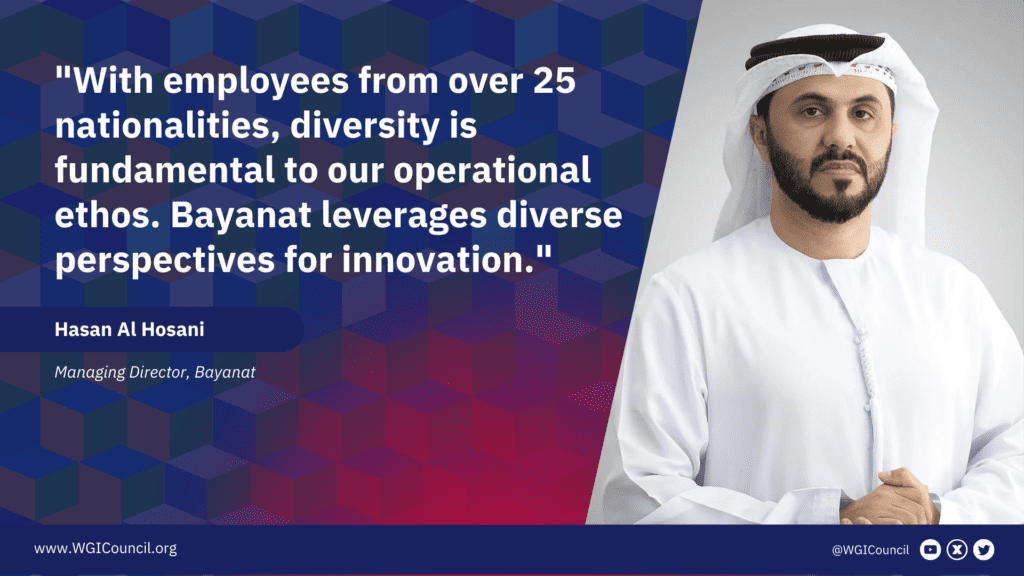
ReOrbit, a provider of software defined satellites, shows a natural commitment to DEI. Founder Sethu Saveda Suvanam emphasizes that diversity results from hiring the best talent globally. With a balanced gender ratio and multinational team, ReOrbit champions inclusivity and excellence. Their approach demonstrates that inclusivity naturally follows when a company focuses on attracting top talent from around the world.
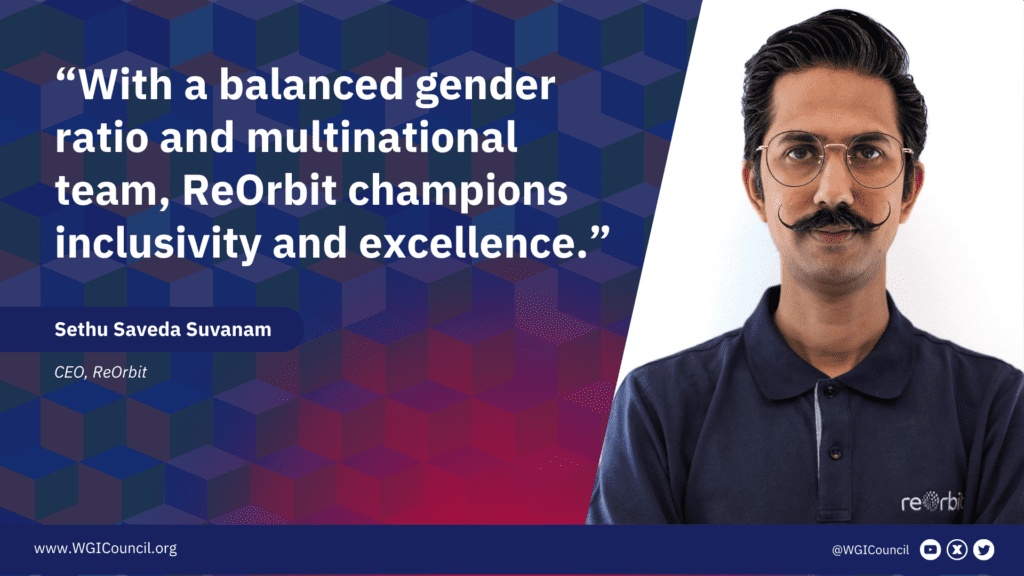
Paving the Way Forward
Diversity, equity, and inclusion are more than buzzwords; they are being embraced in new and unique ways by geospaital startups. By embedding DEI principles into their culture, these companies harness diverse perspectives, foster innovation, and build strong customer relationships. As the industry grows, those prioritizing DEI will lead and thrive in this dynamic field.
Embracing DEI is a continuous journey requiring commitment and effort. For geospatial startups and small companies, this journey is about creating a better workplace and contributing to a more inclusive and innovative industry. Along with WGIC, these companies are poised to make significant strides in advancing DEI within the geospatial sector. The efforts of these startups are setting a benchmark for how DEI can drive growth, innovation, and excellence in the geospatial industry.


